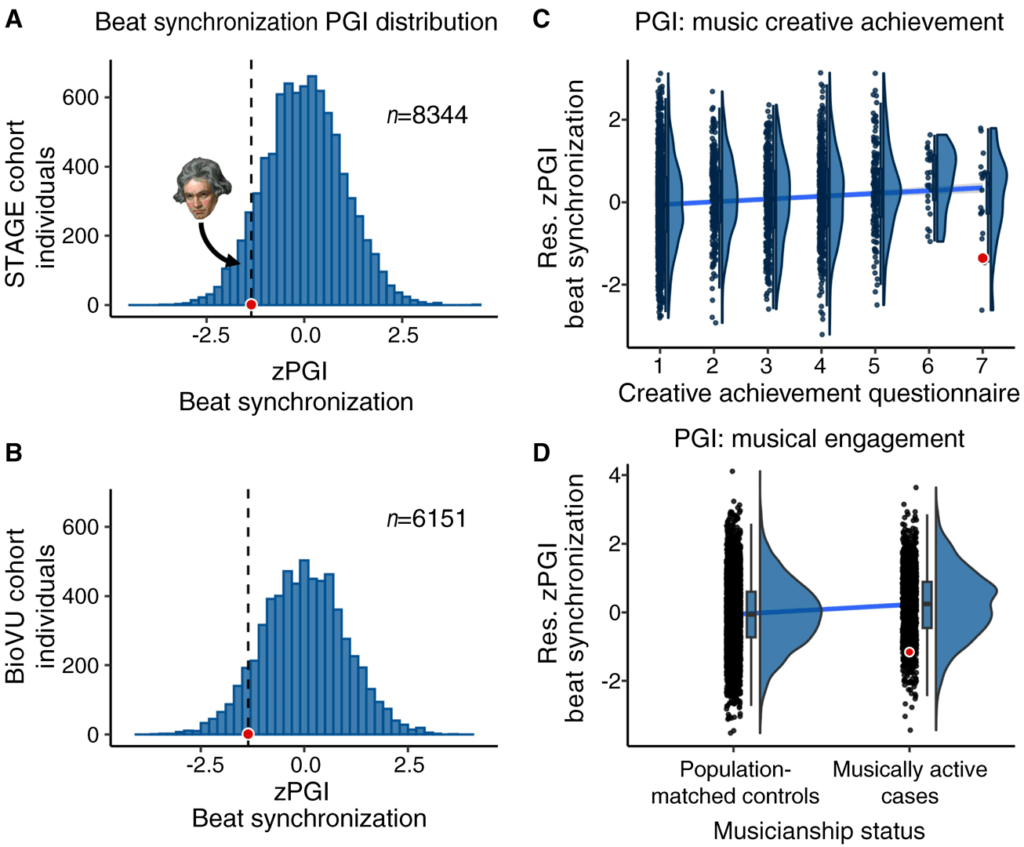A study by Vanderbilt University Medical Center and Max Planck Institutes found that Beethoven, a famous musician, doesn’t have a strong natural ability to keep a beat. This study examines the potential hereditary influences on exceptional skill, such as Beethoven’s. With advanced technology, we can explore the DNA of people from the past. This makes it easier to understand the role genetics play in extraordinary achievements.
International experts examined Beethoven’s DNA to investigate his innate musical ability. They took advantage of data from a 2023 study in which Beethoven’s genetic DNA was extracted from his hair, making it more straightforward to them how his DNA influenced his musical ability.
Tara Henechowicz, B.Mus.Hons, M.A., is a current Ph.D. Candidate at the University of Toronto, a recent visiting graduate student with the Vanderbilt Human Genetics Program, and the paper’s second author said, “For Beethoven, we used his recently sequenced DNA to calculate a polygenic score as an indicator for his genetic predisposition for beat synchronization. Interestingly, Beethoven, one of the most celebrated musicians in history, had an unremarkable polygenic score for general musicality compared to population samples from the Karolinska Institute in Sweden and Vanderbilt’s BioVU Repository.”
The researchers warned that Beethoven’s low genetic score for musical aptitude should not be used as evidence to conclude that his musical genius was ordinary. His story was used to illustrate how difficult it is to forecast a person’s genetic makeup who lived a long time ago. This highlights that genetic tests can’t accurately predict if a child will be musically gifted.
Henechowicz mentioned that although the study doesn’t dismiss the role of DNA in musical skills, previous research has shown that genetics contribute around 42% to musical ability on average.

Co-author Reyna Gordon emphasized the significance of environment and heredity in musical aptitude, pointing out that current research has examined these variables using massive datasets. Polygenic scores, according to Henechowicz, help compare groups of individuals but might not be a reliable indicator of a person’s unique features.
Beethoven’s scientific research clarifies the connection between musical ability and genes. Beethoven’s remarkable achievements demonstrate that musical skill is complex, even though his genes suggest a lesser aptitude for keeping a beat.
Genetics is not the only factor; environmental variables are also important. This shows that both genes and upbringing contribute to someone’s musical talent.
Journal reference:
- Laura W. Wesseldijk, Tara L. Henechowicz et al., Notes from Beethoven’s genome. Current Biology. DOI: 10.1016/j.cub.2024.01.025.
